-
 bitcoin
bitcoin $87959.907984 USD
1.34% -
 ethereum
ethereum $2920.497338 USD
3.04% -
 tether
tether $0.999775 USD
0.00% -
 xrp
xrp $2.237324 USD
8.12% -
 bnb
bnb $860.243768 USD
0.90% -
 solana
solana $138.089498 USD
5.43% -
 usd-coin
usd-coin $0.999807 USD
0.01% -
 tron
tron $0.272801 USD
-1.53% -
 dogecoin
dogecoin $0.150904 USD
2.96% -
 cardano
cardano $0.421635 USD
1.97% -
 hyperliquid
hyperliquid $32.152445 USD
2.23% -
 bitcoin-cash
bitcoin-cash $533.301069 USD
-1.94% -
 chainlink
chainlink $12.953417 USD
2.68% -
 unus-sed-leo
unus-sed-leo $9.535951 USD
0.73% -
 zcash
zcash $521.483386 USD
-2.87%
Is DMA indicator golden cross a trend reversal signal?
The DMA golden cross signals potential bullish reversals in crypto, but traders should confirm with volume and other indicators to avoid false signals.
Jun 22, 2025 at 09:08 am
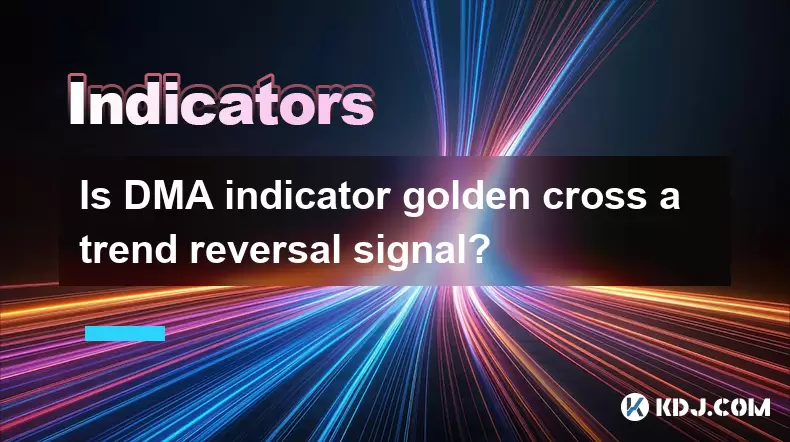
Understanding the DMA Indicator and Its Role in Cryptocurrency Trading
The DMA (Dynamic Moving Average) indicator is a popular technical analysis tool used by traders to identify potential trend reversals and confirm existing trends. Unlike traditional moving averages, the DMA indicator adapts more dynamically to price changes, making it particularly useful in volatile markets like cryptocurrency. The indicator typically consists of two lines: the main line and the signal line. When these lines cross, they form what is known as a 'golden cross' or 'death cross', depending on the direction.
In the context of cryptocurrency trading, understanding how the DMA golden cross works is crucial for making informed decisions. While many traders use this signal in traditional markets, its effectiveness in crypto can vary due to high volatility and different market behaviors.
What Is a Golden Cross in the DMA Indicator?
A DMA golden cross occurs when the main line crosses above the signal line, suggesting a potential shift from a downtrend to an uptrend. This crossover is seen as a bullish signal and is often interpreted by traders as a sign to enter long positions. In fast-moving crypto markets, such signals are closely watched, especially during periods of consolidation or after prolonged bearish phases.
However, it's important to note that not all DMA golden crosses result in actual trend reversals. Sometimes, these crossovers may occur during false breakouts or short-lived rallies, leading to misleading signals. Therefore, traders must combine the DMA golden cross with other forms of confirmation, such as volume spikes or support/resistance levels, to improve accuracy.
How to Identify a DMA Golden Cross on a Crypto Chart
Identifying a DMA golden cross requires a basic understanding of how the indicator is structured on a chart. Most trading platforms allow users to add the DMA indicator, which will display two lines—typically colored differently for clarity. Traders should look for moments when the faster-moving line (main line) crosses upward over the slower-moving signal line.
To spot a valid DMA golden cross, follow these steps:
- Ensure the DMA indicator is correctly applied to your chart.
- Observe the relationship between the two lines—watch for moments when the main line begins to rise while the signal line remains flat or declining.
- Confirm the cross visually and wait for at least one full candlestick to close after the crossover to avoid false triggers.
- Analyze the broader trend and check if the DMA golden cross occurs near key support levels or after extended declines, which increases the likelihood of a real reversal.
Interpreting the DMA Golden Cross in Different Market Conditions
The DMA golden cross behaves differently under various market conditions, especially in cryptocurrency where volatility is high. During strong bearish phases, the DMA golden cross might appear multiple times without leading to sustained rallies. Conversely, in trending markets, a DMA golden cross could signal the continuation of an uptrend rather than a reversal.
Traders must assess the following factors when interpreting the DMA golden cross:
- Market sentiment: A positive news cycle or macroeconomic developments can enhance the reliability of a DMA golden cross.
- Volume: A surge in trading volume during or immediately after the cross adds credibility to the signal.
- Price action: If the price breaks out of a consolidation pattern alongside the DMA golden cross, it strengthens the reversal case.
These contextual elements help filter out weak or misleading signals and focus on high-probability setups.
Combining DMA Golden Cross with Other Indicators for Better Accuracy
Relying solely on the DMA golden cross can be risky in crypto trading due to frequent whipsaws and fakeouts. To increase the probability of successful trades, traders often combine the DMA golden cross with complementary indicators. Here are some commonly used tools:
- Relative Strength Index (RSI): Helps determine whether the market is overbought or oversold at the time of the DMA golden cross, giving insight into possible exhaustion or momentum buildup.
- MACD Histogram: Offers additional confirmation of momentum shifts when aligned with the DMA golden cross.
- Fibonacci Retracement Levels: Identifies potential support zones where a DMA golden cross might lead to a meaningful bounce.
By layering these tools, traders can build a more robust strategy around the DMA golden cross and reduce the risk of entering premature or false trades.
Frequently Asked Questions
Can the DMA golden cross work on all cryptocurrency pairs?
Yes, the DMA golden cross can be applied to any cryptocurrency pair, but its effectiveness may vary based on the liquidity and volatility of the specific asset. Major pairs like BTC/USDT or ETH/USDT tend to produce clearer signals compared to less liquid altcoins.
Does the DMA golden cross guarantee a trend reversal?
No, the DMA golden cross does not guarantee a trend reversal. It is a probabilistic signal that suggests a potential change in direction, but it must be confirmed with other technical or fundamental factors before acting on it.
Should I trade every DMA golden cross I see?
It’s generally not advisable to trade every DMA golden cross. Successful trading involves filtering signals based on context, including trend strength, volume, and alignment with other indicators.
How reliable is the DMA golden cross compared to the traditional moving average golden cross?
The DMA golden cross tends to react faster than traditional moving average crossovers due to its dynamic nature. However, this sensitivity can also lead to more false signals. Each has its strengths, and the choice depends on the trader’s strategy and risk tolerance.
Disclaimer:info@kdj.com
The information provided is not trading advice. kdj.com does not assume any responsibility for any investments made based on the information provided in this article. Cryptocurrencies are highly volatile and it is highly recommended that you invest with caution after thorough research!
If you believe that the content used on this website infringes your copyright, please contact us immediately (info@kdj.com) and we will delete it promptly.
- Blockchain Gaming's Quiet Revolution: Unpacking Latest Trends and Industry Insights Amidst Market Shifts
- 2026-02-02 06:30:01
- Crypto Crossroads: Bitcoin Price Reacts to Fed Jitters Amidst Shifting Sands
- 2026-02-02 05:05:02
- Justin Sun, Tron, Manipulation Allegations: New Bitcoin Strategy Meets Lingering Controversy
- 2026-02-02 05:05:02
- Bitcoin Eyes $77K as Michael Saylor Reaffirms Unwavering Conviction Amidst Market Swings
- 2026-02-02 05:00:02
- Altcoin Season on the Horizon? ETH, XRP, SOL, ADA Face Potential 184x Gains Amidst Shifting Crypto Landscape
- 2026-02-02 05:00:02
- Bitcoin ETF News: Latest Updates Drive Investment and Market Dynamics
- 2026-02-02 04:50:02
Related knowledge
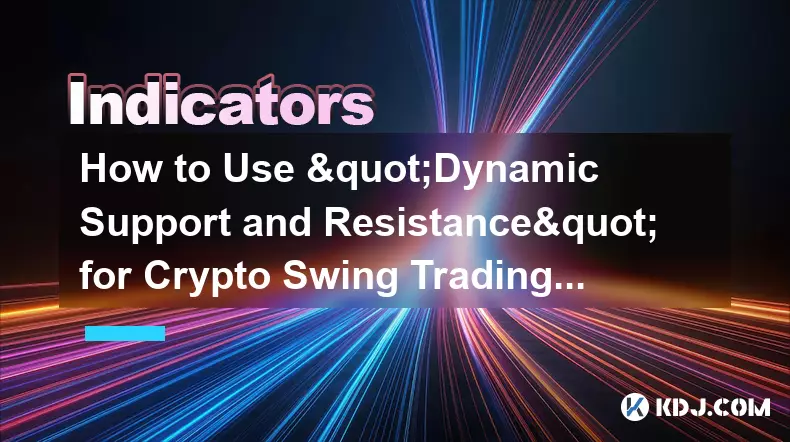
How to Use "Dynamic Support and Resistance" for Crypto Swing Trading? (EMA)
Feb 01,2026 at 12:20am
Understanding Dynamic Support and Resistance in Crypto Markets1. Dynamic support and resistance levels shift over time based on price action and movin...
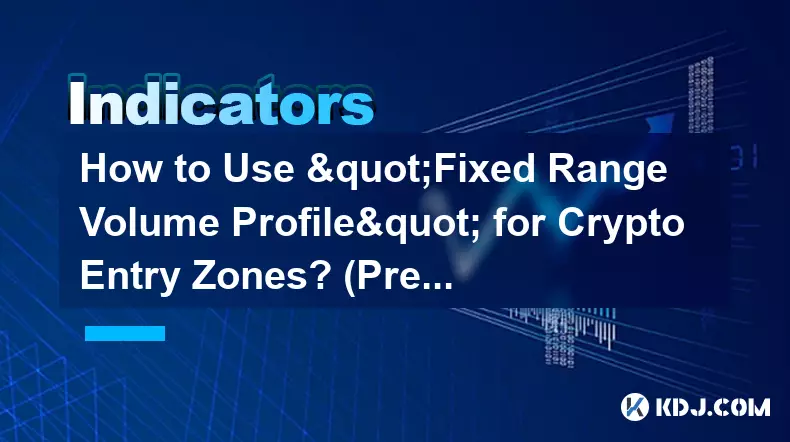
How to Use "Fixed Range Volume Profile" for Crypto Entry Zones? (Precision)
Feb 01,2026 at 10:19pm
Understanding Fixed Range Volume Profile Mechanics1. Fixed Range Volume Profile (FRVP) maps traded volume at specific price levels within a defined ti...
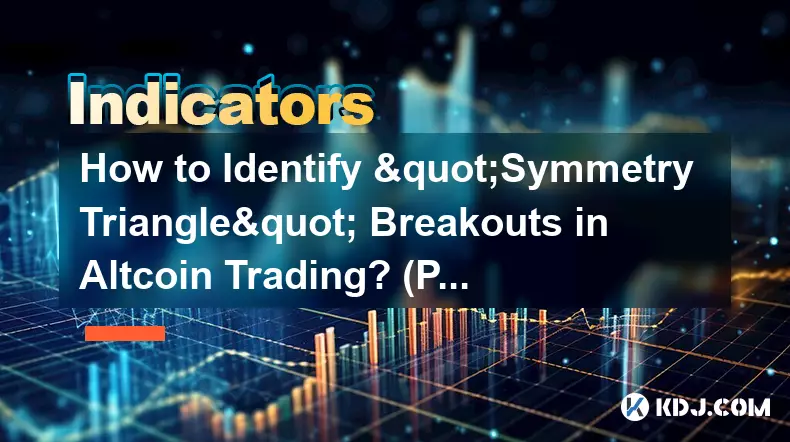
How to Identify "Symmetry Triangle" Breakouts in Altcoin Trading? (Patterns)
Feb 01,2026 at 01:39pm
Symmetry Triangle Formation Mechanics1. A symmetry triangle emerges when price action consolidates between two converging trendlines—one descending an...
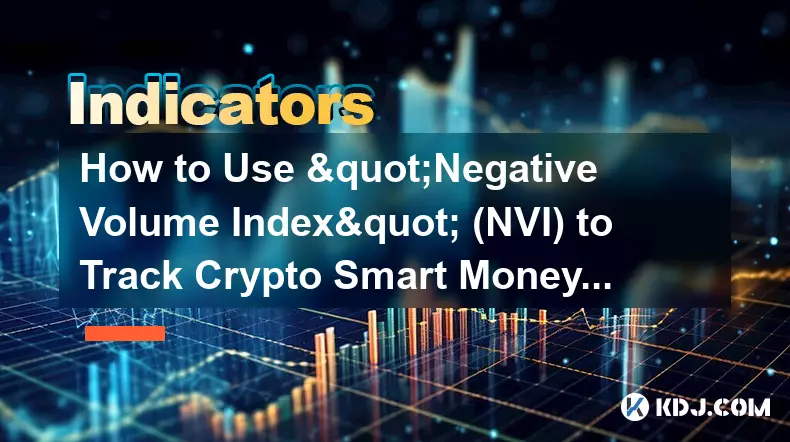
How to Use "Negative Volume Index" (NVI) to Track Crypto Smart Money? (Pro)
Feb 01,2026 at 02:40am
Understanding NVI Mechanics in Crypto Markets1. NVI calculates cumulative price change only on days when trading volume decreases compared to the prio...

How to Spot "Absorption" in Crypto Order Books? (Scalping Technique)
Feb 01,2026 at 08:39pm
Understanding Absorption Mechanics1. Absorption occurs when large buy or sell orders repeatedly appear and vanish at the same price level without trig...
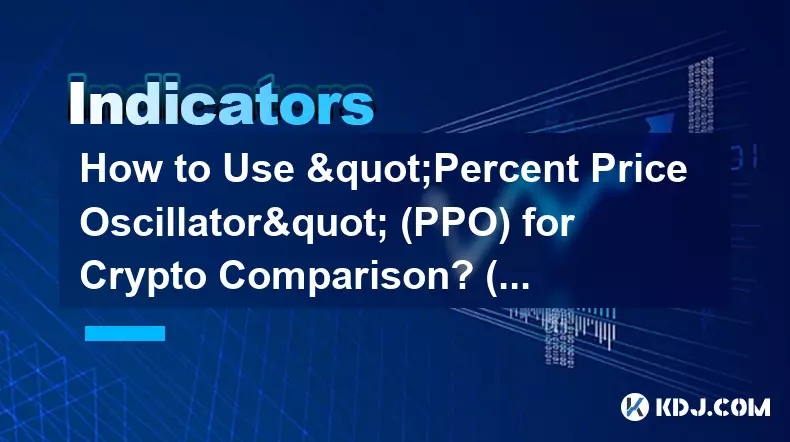
How to Use "Percent Price Oscillator" (PPO) for Crypto Comparison? (Strategy)
Feb 01,2026 at 01:59am
Understanding PPO Mechanics in Volatile Crypto Markets1. The Percent Price Oscillator calculates the difference between two exponential moving average...

How to Use "Dynamic Support and Resistance" for Crypto Swing Trading? (EMA)
Feb 01,2026 at 12:20am
Understanding Dynamic Support and Resistance in Crypto Markets1. Dynamic support and resistance levels shift over time based on price action and movin...

How to Use "Fixed Range Volume Profile" for Crypto Entry Zones? (Precision)
Feb 01,2026 at 10:19pm
Understanding Fixed Range Volume Profile Mechanics1. Fixed Range Volume Profile (FRVP) maps traded volume at specific price levels within a defined ti...

How to Identify "Symmetry Triangle" Breakouts in Altcoin Trading? (Patterns)
Feb 01,2026 at 01:39pm
Symmetry Triangle Formation Mechanics1. A symmetry triangle emerges when price action consolidates between two converging trendlines—one descending an...

How to Use "Negative Volume Index" (NVI) to Track Crypto Smart Money? (Pro)
Feb 01,2026 at 02:40am
Understanding NVI Mechanics in Crypto Markets1. NVI calculates cumulative price change only on days when trading volume decreases compared to the prio...

How to Spot "Absorption" in Crypto Order Books? (Scalping Technique)
Feb 01,2026 at 08:39pm
Understanding Absorption Mechanics1. Absorption occurs when large buy or sell orders repeatedly appear and vanish at the same price level without trig...

How to Use "Percent Price Oscillator" (PPO) for Crypto Comparison? (Strategy)
Feb 01,2026 at 01:59am
Understanding PPO Mechanics in Volatile Crypto Markets1. The Percent Price Oscillator calculates the difference between two exponential moving average...
See all articles










































































